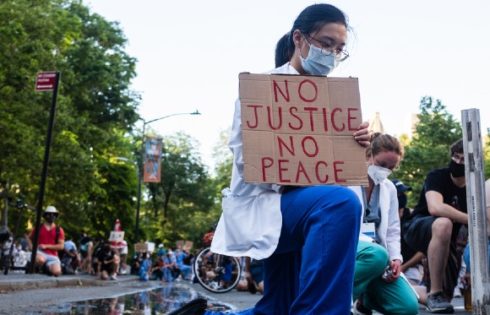
The media are again confused on the line between a regretted drunk hookup and a sexual assault against a victim who is too far gone to know what’s happening.
A study of nearly 500 female first-year students at a “private university in New York State” – who participated in “general women’s health” surveys throughout the year – found that 15 percent were victims of rape or attempted rape while “incapacitated.”
At least that’s how Newsweek reported the survey, published in this month’s issue of the Journal of Studies on Alcohol and Drugs, without noting these are self-reported descriptions by survey participants.
LiveScience glossed over this condition of the survey as well, focusing instead on the higher risk of assault for female students who had been victimized before college or who believe that “drinking alcohol could enhance a person’s sexual experience.”
“Digital culture” news site Mashable, of all outlets, elaborated on this point:
The researchers did not define incapacitation by how much a victim consumed, but by her own report of whether she was unable to consent or object to sex.
This “by her own report” is no small matter.
A student who claims to remember the particulars of a sex act was likely not incapacitated at the time. Those who can’t remember the details are probably relying on their own speculation – confused by the intimidating experience of unexpectedly waking up in someone else’s bed, or having no idea how they got home – or the assertions of their friends, who may be simply constructing a narrative based on their friend’s scattered memories.
Add to this decades of academic research, led by cognitive psychologist Elizabeth Loftus, demonstrating how easily memories can be manipulated, without any intention to do so, and you really start to feel sorry for campus administrators trying to get to the bottom of a disputed sexual encounter.
Union College in New York provides a reasonably accurate definition of “incapacitation” that shows how specific that determination is:
Incapacitation is a state where an individual cannot make an informed and rational decision to engage in sexual activity because he/she lacks conscious knowledge of the nature of the act (e.g., to understand the “who, what, when, where, why or how” of the sexual interaction) and/or is physically helpless. An individual is incapacitated, and therefore unable to give consent, if he/she is asleep, unconscious, or otherwise unaware that sexual activity is occurring.
Yet college messaging on consent and incapacitation is all over the map.
Coastal Carolina University, for example, at one point declared that sex between two drunks students means a male is guilty of rape, and then modified that to say that consensual sex must be “sober” and “enthusiastic” by both parties. The University of Maryland was flat-out lying to students in its mandatory sexual misconduct online training program, telling them that intoxication by itself negates consent.
Without knowing which private college in New York this is, we can’t judge whether these first-year females are getting remotely accurate information from their school about what constitutes “incapacitation,” much less whether they can accurately recall their state of mind the morning after.
Don’t count on many journalists to make a good-faith attempt to convey this ambiguity to readers, rather than sensationalize research they don’t understand.
Like The College Fix on Facebook / Follow us on Twitter
IMAGE: Shutterstock
Like The College Fix on Facebook / Follow us on Twitter






Please join the conversation about our stories on Facebook, Twitter, Instagram, Reddit, MeWe, Rumble, Gab, Minds and Gettr.